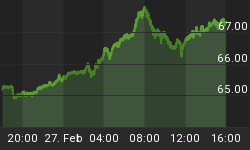The latest rush into crude oil has revived the spirits of "Peak Oil" advocates. As prices soared to 147 last June, convictions about even the most extravagant analysis of supply and demand became undisciplined. Our analysis of price registered an Upside Exhaustion that had only been registered at the secular high in 1980--the conclusion was that a secular bear was possible.
Crude prices could be benign into September and then succumb, again, to credit pressures. In the meantime, it is worth reviewing the phenomenon whereby a period of significantly rising prices inspires certain intellects to discover "end-of-civilization stories". "Peak Oil" is one such story and "Peak Coal" was an earlier example.
The fabulous asset inflations that climaxed in 1873 included disaster stories about running out of coal. The leading economist, Stanley Jevons, had a personal revelation that the world was going to run out of coal and civilization would collapse. His book, "The Coal Question" was the equivalent of today's fantasies about "Peak Oil".
Sadly, "Peak Coal" was soon assigned to the dustbin of history as the Great Depression of 1873 to 1895 prompted a couple of generations of intellectuals to fantasize about how it could have been avoided or ameliorated. Economists more ambitious of their posterity worked on recommending protectionism to all too susceptible governments.
Believe it or not, whale oil was the equivalent of crude oil as it played an important part in illumination, cosmetics and various chemicals. In gold terms the price fell to around 20 percent of the high in the 1860s.
By the same measure (relative to gold) crude could fall to around 25 percent of its high. That would be on annual averages.
In the meantime, it is worth adding that both "Peak Coal" and "Peak Oil" hysterias were based upon very detailed supply/demand analysis. Jevons used extensive data on known coal reserves to a mining depth of 4000 feet. Oil reserve calculations on the Peak story have been painstakingly detailed and widely circulated. But no matter how ardent the beliefs, in 2008 crude's price relative to gold plunged to a third of the high.
That was from June to December, which suggests that the equivalent or even worse could be accomplished over the course of a couple of recessions, within a lengthy post-bubble contraction.
This advisory service got its start in the 1970s by providing analysis of metal prices and credit markets to a couple of the big mining companies. One of them dedicated a considerable amount of time and resources to cracking the problem of the business cycle and metal prices. The conclusions were that historical examples provided the most reliable guidance and that supply/demand analysis was impractical.
The best use of fundamental analysis about mine openings and depletions; monsoons and souks, is to provide executives with something to talk about at their clubs.















